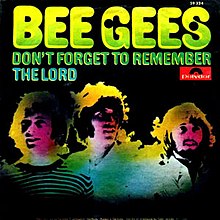
The Bee Gees were a musical group formed in 1958 by brothers Barry, Robin, and Maurice Gibb. The trio were especially successful in popular music in the late 1960s and early 1970s, and later as prominent performers in the disco music era in the mid- to late 1970s.

Sir Barry Alan Crompton Gibb is a British musician, singer, songwriter and record producer. Along with his younger brothers, Robin and Maurice, he rose to worldwide fame as a member of the Bee Gees, one of the most commercially successful groups in the history of popular music. Well known for his wide vocal range, Gibb's most notable trait is a far-reaching high-pitched falsetto. Gibb's career has spanned over 60 years.

Cucumber Castle is the seventh studio album by the Bee Gees, released in April 1970. It was produced by Barry Gibb, Maurice Gibb, and Robert Stigwood. It consists of songs from their television special of the same name, which was named after a song on their 1967 album Bee Gees' 1st. Cucumber Castle is the only Bee Gees album not to feature any recorded contributions from Robin Gibb, as he had left the group before the album was recorded.

Trafalgar is a 1971 album by the Bee Gees. It was their ninth album, and was released in September 1971 in the US, and November 1971 in the UK. The album was a moderate hit in the United States, and peaked at No. 34. The lead single "How Can You Mend a Broken Heart?" was the first Bee Gees' No. 1 single in the United States but failed to chart in Britain as did the album. It is Geoff Bridgford's only full-length appearance on a Bee Gees album as an official member.
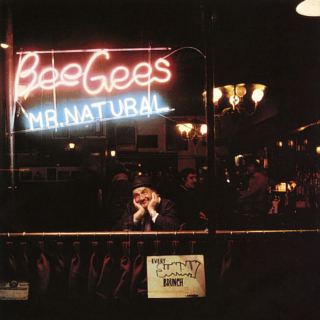
Mr. Natural is the twelfth studio album by the Bee Gees, released in 1974. It was the first Bee Gees release produced by Arif Mardin, who was partially responsible for launching the group's later major success with the follow-up album Main Course. The album's rhythm and blues, soul, funk, and hard rock sounds initiated the group's reinvention as a disco and blue-eyed soul act, which would solidify on subsequent albums. However, Barry Gibb has said that the album was "whiter" than Main Course. The cover photograph was taken at 334 West 4th Street, Greenwich Village, New York City by Frank Moscati, which is today known as The Corner Bistro tavern.
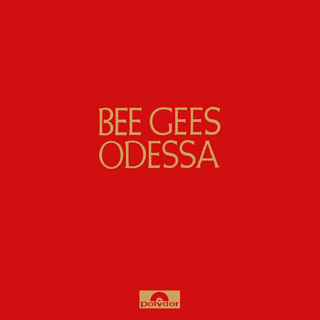
Odessa is the sixth studio album by the Bee Gees, a double vinyl LP released in February 1969, initially in an opulent red flocked cover with gold lettering. Despite reaching the UK Top Ten and the US Top 20, the album was not particularly well-received, though now is regarded by many as the most significant of the group's Sixties albums. An ambitious project, originally intended as a concept album on the loss of a fictional ship in 1899, it created tension and disagreements in the band regarding the work's direction; finally, a dispute over which song to release as a single led to Robin Gibb temporarily leaving the group.
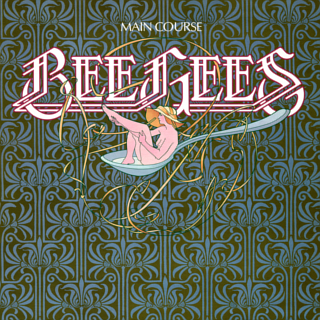
Main Course is the thirteenth studio album by the Bee Gees, released in 1975 by RSO Records. It was the group's last album to be released by Atlantic Records in the US under its distribution deal with Robert Stigwood. This album marked a great change for the Bee Gees as it was their first album to include mostly R&B, soul and funk-influenced songs, and created the model for their output through the rest of the 1970s. It rejuvenated the group's career and public image, particularly in the US, after the commercial disappointment of their preceding albums. Main Course was the first album to feature keyboardist Blue Weaver who had just left the Strawbs and toured with Mott the Hoople. The album cover with the band's new logo designed by US artist Drew Struzan made its first appearance here.

The Bee Gees Sing and Play 14 Barry Gibb Songs is the debut studio album by the Bee Gees. Credited to Barry Gibb and the Bee Gees, it was released in November 1965 on the Australian Leedon label. It is a compilation of most of the Gibb brothers' singles that had been released over the previous three years in Australia, which accounts for the many different styles of music on it.
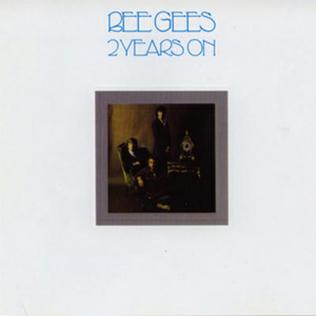
2 Years On is the eighth studio album by the Bee Gees, which reached No. 32 on the US charts. Released in 1970, the album saw the return of Robin Gibb to the group after an earlier disagreement and subsequent split following Odessa. 2 Years On was the first album with drummer Geoff Bridgford, who remained a full-time member of the group until 1972 although he was not pictured on the sleeve. The best-known track is "Lonely Days". Released as the first single by the reunited brothers, it charted high in the US, but peaked at No. 33 in the United Kingdom.

To Whom It May Concern is the tenth album by the Bee Gees. Released in October 1972, it is the follow-up to, and continues the melancholic and personal sound of its predecessor, Trafalgar. The album was recognised as "a farewell to the old Bee Gees" as the album marked the end of an era for the group in several ways: it was their last album to be recorded solely at IBC Studios, in London, their last with conductor and arranger Bill Shepherd, who had guided them since 1967, and their last under their first contract with Robert Stigwood. Some of the songs were old ones finished or rewritten for the occasion.
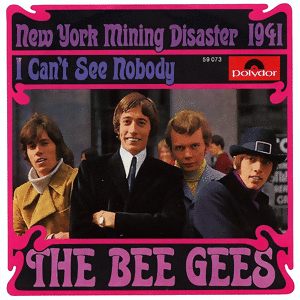
"New York Mining Disaster 1941" is the debut American single by the Bee Gees, released on 14 April 1967. It was written by Barry and Robin Gibb. Aside from a moderately successful reissue of their Australian single "Spicks and Specks," it was the first single release of the group's international career and their first song to hit the charts in both the UK and the US. It was produced by Ossie Byrne with their manager Robert Stigwood as executive producer. The song was the first track of side two on the group's international debut album, Bee Gees' 1st. This was the first single with Australian drummer Colin Petersen as an official member of the band.
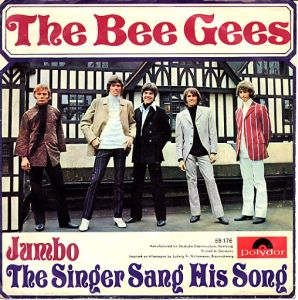
"Jumbo" is a song released by the Bee Gees, written by Barry, Robin and Maurice Gibb. It was released as a double A side with "The Singer Sang His Song" but featured as the lead track in some territories.
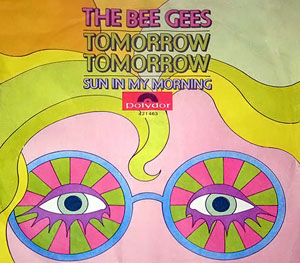
"Tomorrow Tomorrow" is a song by the Bee Gees written by Barry and Maurice Gibb. The song was originally intended to be recorded by Joe Cocker. It was the first Bee Gees single released after Robin Gibb had quit the group which was now down to a trio featuring Barry Gibb, Maurice Gibb, and drummer Colin Petersen.

"Mr. Natural" is a song by the Bee Gees, written by Barry and Robin Gibb. On 29 March 1974, it was released as a single and also released on the album of the same name in 1974. It was backed with a folk rock number "It Doesn't Matter Much to Me". The group's first single which was produced by Arif Mardin.

"Wouldn't I Be Someone" is a song by the Bee Gees. It was released on 22 June 1973 in the United Kingdom and in July 1973 in the United States. The photo on the cover of the single was also used on Best of Bee Gees, Volume 2.
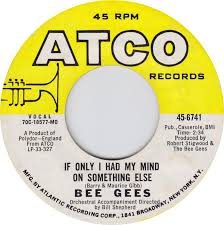
"If Only I Had My Mind on Something Else" is a pop ballad recorded by the Bee Gees. It was written by Barry and Maurice Gibb. It was the first track on the album Cucumber Castle. A remastered version was released in 1990 on Tales from the Brothers Gibb.
"Bury Me Down By the River" is a song written by Barry and Maurice Gibb and recorded separately by the Bee Gees and P.P. Arnold. The Bee Gees' version was recorded in May 1969 at IBC Studios and released in April 1970 on the album Cucumber Castle.

"Lamplight" is a song by the Bee Gees, released as the B-side of "First of May", but featured as the single's A-side in Germany. It also featured on their double album Odessa in March 1969. The song was written and composed by Barry, Robin & Maurice Gibb and featured lead vocals by Robin Gibb. No other singles were released from the album, and the fact that the group's manager Robert Stigwood chose "First of May", which only featured Barry Gibb's voice for the A-side, that caused Robin to quit the group.
"Craise Finton Kirk Royal Academy of Arts" is a song by the Bee Gees on the album Bee Gees' 1st. Written by Barry and Robin Gibb, it closes the first side of the album. An alternate take was released in 2006 on The Studio Albums 1967-1968. This track was recorded on March 21 after the orchestral dubbing for the other album tracks had been laid down. Featuring only piano and voice, the song stands in stark contrast to the rest of the album.

"The Lord" is a song by the Bee Gees. It was released as the B-side of "Don't Forget to Remember" in August 1969 and later included on Cucumber Castle in early 1970.
